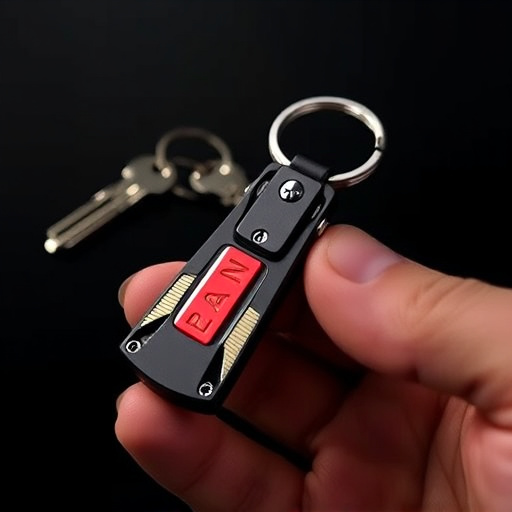In the US, the legal status of concealed keychain protection devices for women is inconsistent across states, creating a 'gray area' for personal safety. While some states permit these tools under specific conditions, others have vague or non-existent rules. Understanding local regulations is crucial for women to ensure compliance and safe use, balancing their right to self-defense with legal responsibilities.
In today’s world, personal safety is a top concern, especially for women. One innovative solution gaining traction is the concealed keychain protection device. This article guides you through the legal landscape surrounding these compact self-defense tools in various states. We’ll explore who can carry them, understand the specific regulations, and highlight the rights and responsibilities of users. By delving into these key aspects, we aim to empower individuals, particularly women, with knowledge on harnessing concealed keychain protection legally and responsibly.
- Understanding State Laws on Concealed Keychain Devices
- Who Can Carry and Where is It Legal?
- Legal Requirements for Self-Defense Keychains
- Rights and Responsibilities of Users
Understanding State Laws on Concealed Keychain Devices
In many states, the legal status of concealed keychain protection devices is a gray area for women who want to enhance their personal safety. These small, often discreet self-defense tools are designed to fit on keychains and provide an extra layer of security in case of emergencies. However, understanding the specific laws surrounding these devices is crucial before considering their use. Each state has its own regulations regarding hidden weapons or self-defense tools, and what may be legal in one place could be prohibited in another.
Women should familiarize themselves with the local legislation to ensure they are not violating any laws. Some states explicitly allow concealed keychain protection devices if they meet certain criteria, such as size restrictions and registration requirements. Others might have vague or non-existent regulations, leaving room for interpretation. It’s essential to stay informed about these legal nuances to avoid potential consequences and ensure that personal safety measures align with the law.
Who Can Carry and Where is It Legal?
In many states across the US, concealed keychain protection devices are legal for individuals who meet certain criteria. These tiny yet powerful tools are especially sought after by women looking to enhance their personal safety. According to state laws, only licensed individuals, such as those with valid concealed carry permits, are permitted to carry these devices in public places. This ensures that the right to bear arms is balanced with public safety considerations.
The legality of keychain self-defense tools varies from state to state, so it’s crucial for users to familiarize themselves with local regulations. Some states allow open or concealed carry of such devices without a permit, while others require compliance with specific requirements, including background checks and training certifications. Understanding these legal parameters is essential to ensure compliance and promote the safe use of keychain protection devices among women who prioritize their personal security.
Legal Requirements for Self-Defense Keychains
In many states, the legality of concealed keychain protection devices, often marketed as self-defense keychains, is a topic of interest, especially for women seeking personal safety. These small, discreet gadgets are designed to provide an extra layer of security against potential attackers, but their use comes with specific legal considerations. The first step for any individual considering carrying such a device is to understand the local laws and regulations regarding self-defense tools.
States have varying rules when it comes to concealed weapons, and these regulations can impact the legality of keychain defense devices. Some states allow the possession of small, non-lethal self-defense tools, while others have stricter restrictions. Women should check if their state permits concealed keychain protection devices and understand the specific requirements for age, permit or license acquisition, and any limitations on the type of device allowed. Knowing these legal parameters ensures that individuals can protect themselves within the boundaries of the law.
Rights and Responsibilities of Users
When carrying a concealed keychain protection device, users in many states enjoy a right to self-defense. However, this right comes with responsibilities. It’s crucial for women (and everyone) carrying such devices to understand their state’s specific legal requirements and how they apply to these tools.
In addition to adhering to local laws, users must exercise caution and common sense. This includes ensuring the device is readily accessible but not in plain view, knowing its limitations, and only using it as a last resort when faced with an imminent threat. Responsibly owning a concealed keychain protection device means being informed, prepared, and committed to personal safety without infringing upon others’ rights or inviting unnecessary attention.
In light of varying state laws regarding concealed keychain protection devices, it’s essential for individuals, especially women seeking enhanced personal safety, to understand their rights and responsibilities. While these compact tools offer a sense of security, users must familiarize themselves with local regulations to ensure legal compliance. By staying informed, individuals can make informed decisions about self-defense options, balancing convenience and the exercise of their right to protect themselves.
